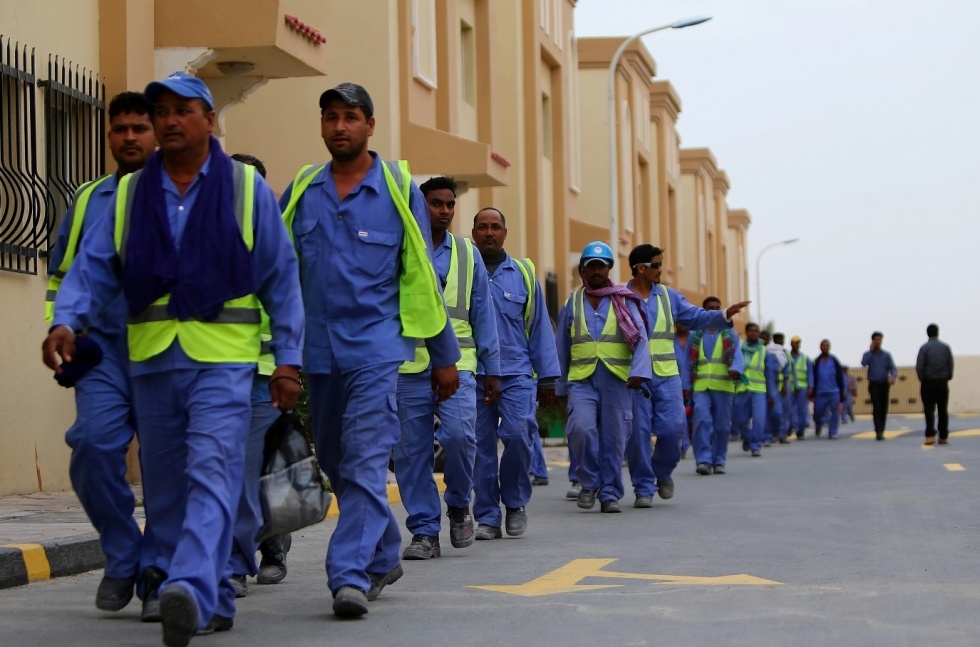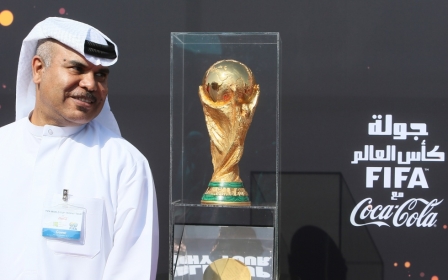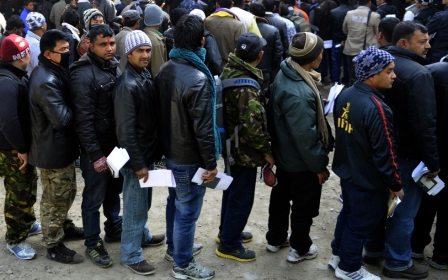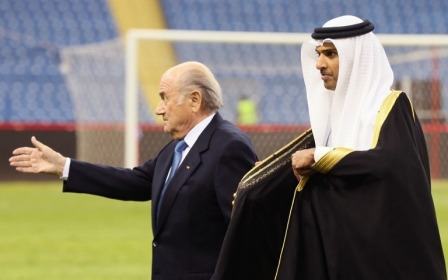Qatar arrests journalists investigating alleged World Cup corruption

A team of German journalists who were working on a documentary investigating claims of corruption regarding Qatar’s hosting of the the 2022 World Cup were arrested by police in the Gulf state before being released, it emerged on Wednesday.
Journalists from the WDR and ARD channels, two of the biggest public broadcasting networks in Germany, who were working on a documentary titled “The Selling of Football - Sepp Blatter and the Power of FIFA,” were detained on 2 April for 14 hours before their release.
A statement from WDR confirmed that professional and personal equipment were confiscated by Qatari security services before being returned damaged to the German journalists four weeks later.
“The WDR team was arrested during a shooting with workers in the Qatari capital Doha, then interrogated by the State Security and only released after 14 hours,” the statement read. “The WDR employees were not allowed to leave Qatar for five days.”
“The camera equipment, laptops and personal mobile phones were confiscated and returned only after a four-week delay. All data has been deleted and pieces of equipment were damaged.”
The international watchdog Reporters Beyond Borders condemned Qatar’s detainment of the foreign journalists, calling on the government to allow for an “unhindered” work access.
“The government in Doha has to ensure that foreign journalists can investigate critical topics such as the situation of human rights in Qatar unhindered,” said Christian Mihr, the executive director of Reporters Without Borders’ German section. “Since Qatar is seeking the international spotlight with this international sports event, it will have to face up to a critical global public.”
The ARD channel aired a report on Monday that interviewed Nepalese workers about their squalid living conditions. Florian Bauer, the journalist for ARD who was detained by Qatar, told the channel that the available footage was smuggled out on USB sticks out of Qatar.
Improved employment contracts, accommodation
Qatar has been under fire for its labour laws, and international scrutiny has been directed at the migrants’ living and working conditions. Amidst growing concern over the poor treatment of migrant workers and labourers in Qatar, the Guardian reported last year that around 400 Nepalese workers had died building infrastructure projects and facilities for the 2022 World Cup.
The Qatari government has revealed plans for a number of reforms to be implemented in a bid to deflect criticism from its image as World Cup host.
On Monday, the Qatari labour minister said that he had high hopes the country’s “kafala” system, in which migrant workers are sponsored by local employers and are not allowed to change jobs, will be abolished by the end of this year.
Dr Abdullah bin Saleh al-Khulaifi said that the system will be replaced with one based on employment contracts, allowing migrants to work in the country up to a maximum of five years.
Also on Monday, Qatar’s World Cup tournament chief Hassan al-Thawadi claimed that there had been no deaths of migrants working on the construction of World Cup stadiums caused by injuries or industrial accidents.
“The World Cup stadium projects that we are responsible for, there have been no fatalities and no major injuries as well,” he said, adding that there are over 2,500 workers building five stadiums.
The country has also announced its plan to build seven labour cities by the end of the year 2016 for more than a quarter of a million migrant workers building the infrastructure and stadiums for the World Cup 2022.
The largest one, called “Labour City” will accommodate 70,000 people and will have its own 24,000-seat cricket stadium, a mall, health centre, and the second largest mosque in Qatar.
Middle East Eye propose une couverture et une analyse indépendantes et incomparables du Moyen-Orient, de l’Afrique du Nord et d’autres régions du monde. Pour en savoir plus sur la reprise de ce contenu et les frais qui s’appliquent, veuillez remplir ce formulaire [en anglais]. Pour en savoir plus sur MEE, cliquez ici [en anglais].




